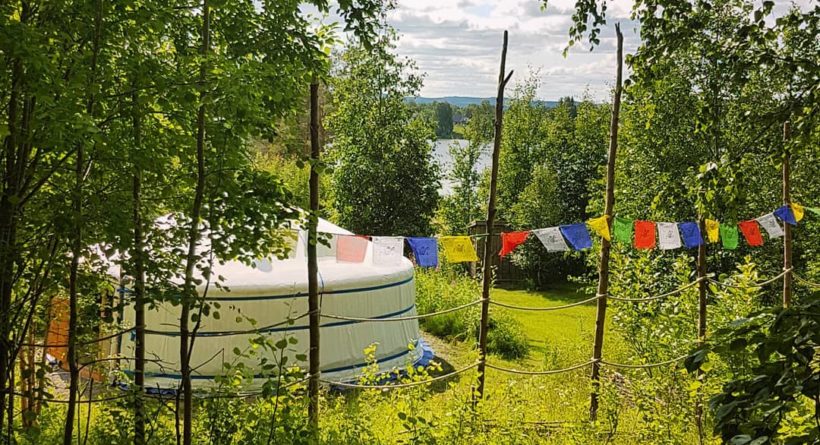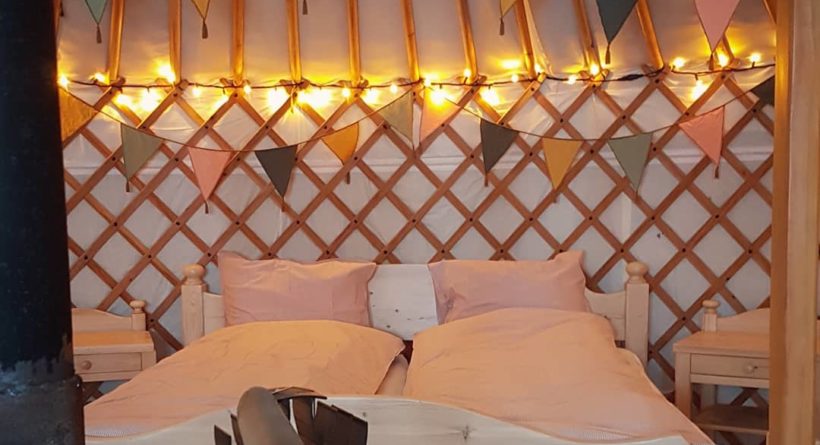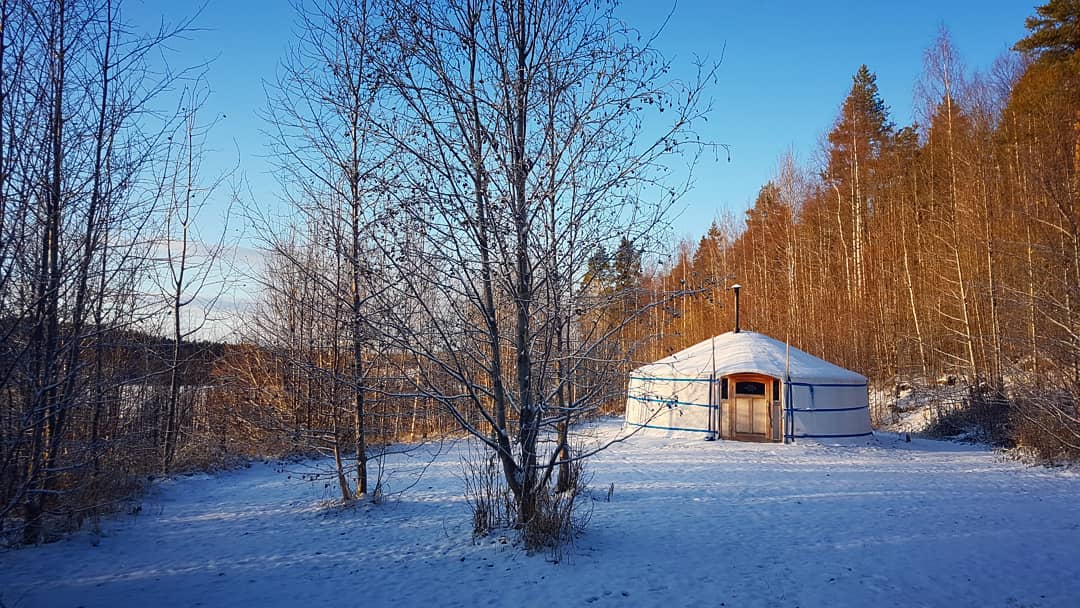Lapland Yurts
[cbxwpbookmarkbtn]
Hot or cold days. Sun, rain, snow, storm, winter darkness or endless summer daylight. Staying in a yurt is a very pure experience. It is the perfect place to unwind. A weekend, part of a week, a whole week or your entire vacation.
The yurt stays cool in the summer and warm when it's cold outside due to the thick layer of felt insulation and the wood-burning stove keeping it nice and warm.
Att vara tillsammans i ett runt utrymme är speciellt. Detta vet man av erfarenhet och Lapland Yurts hör det ofta från gästerna. En yurt ger en mysig atmosfär av trygghet och lugn, samtidigt som den är robust och funktionell.
In Mongolia, the yurt is called a 'ger', which means 'house' or 'home'. It is a house for the nomadic way of life in Mongolia. With its sophisticated design and atmosphere, the yurt invites us to go back to our roots; the simplicity of our existence.
LAPLAND YURTS
Leåkersvägen 16
961 96 Boden
laplandyurts@gmail.com
+46 725 180 196




